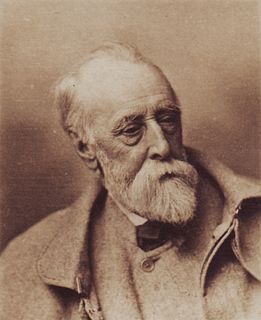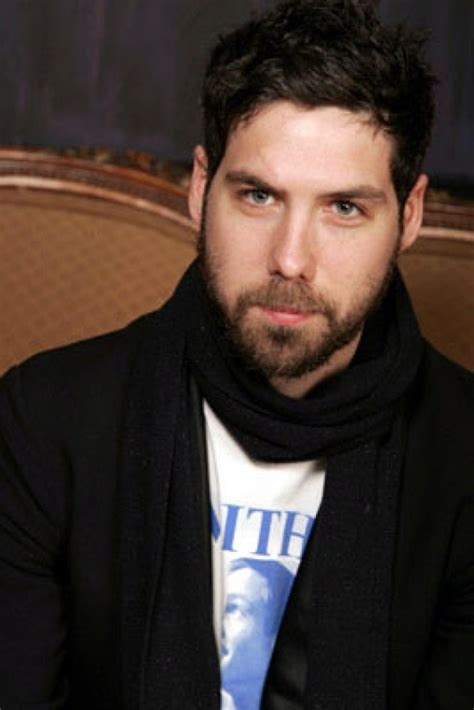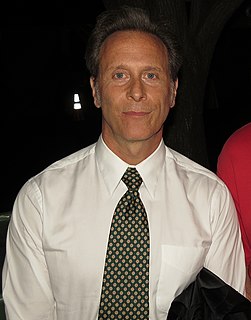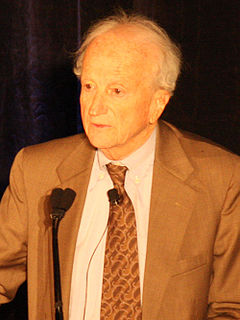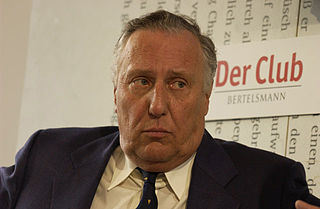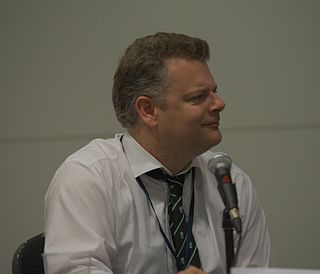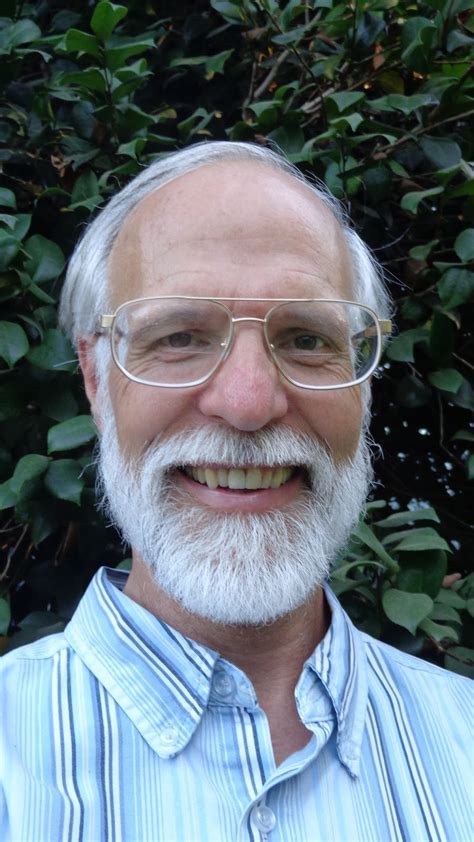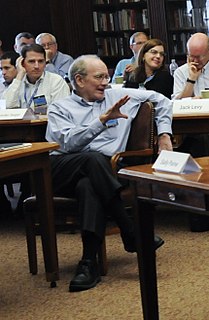Top 424 Argued Quotes & Sayings - Page 7
Explore popular Argued quotes.
Last updated on April 20, 2025.
In the Bible (Hebrews, 6:19), hope is ‘an anchor of the soul, both sure and stedfast, and which entereth into that within the veil.’ Here [in Watts painting], Hope is blindfolded, seated on a globe and playing a lyre of which all but one of the strings are broken . . . Hope’s attempts to make music appear futile and several critics argued that the work might have been more appropriately titledDespair. Watts explained that ‘Hopeneed not mean expectancy. It suggests here, rather, the music which can come from the remaining cord’.
Two of my favorite artists are Josh Smith and Joe Bradley. But I argued against them for years, until I grew to love them and felt stupid for my immediate reaction towards their work. Now, I wouldn't be happier than to simply be their friend and to talk to them about what got them making art that was years ahead of my understanding. I never went to school for art or was told what to like or when. So every day is a learning process, like most of life.
Like the amazing story of Anthony Johnson. This man was a slave, then became free, accumulated 250 acres, and even had his own slave, a black man who took him to court in Virginia in 1654.That man argued that he should be freed like an indentured servant. But Johnson, who we believe was a pure African from Angola, said, "No way, you're my slave." And the court agreed.
It has been an obsession of human beings to create a hierarchy that places the human species on top and lumps all the "other animals" together beneath us. The resulting "speciesism" allows us to look upon animals as less deserving of all manner of rights and considerations than humans. To support this lower status, humans have argued that animals act instinctually; don't have souls; don't feel physical pain like we do; and lack self-consciousness, cognitive intelligence, emotional feelings, morality, and ethics.
It has often been argued that absolute scepticism is self-contradictory; but this is a mistake: and even if it were not so, it would be no argument against the absolute sceptic, inasmuch as he does not admit that no contradictory propositions are true. Indeed, it would be impossible to move such a man, for his scepticism consists in considering every argument and never deciding upon its validity; he would, therefore, act in this way in reference to the arguments brought against him.
Malthus argued a century and a half ago that man, by using up all his available resources, would forever press on the limits of subsistence, thus condemning humanity to an indefinite future of misery and poverty. We can now begin to hope and, I believe, know that Malthus was expressing not a law of nature, but merely the limitation then of scientific and social wisdom. The truth or falsity of his prediction will depend now, with the tools we have, on our own actions, now and in the years to come.
Gabbe jumped up and seized the cocanut first, giving its contents a sniff. "Arriane, she has just been through a trama," she scolded. Arriane tossed her shoulders back. "Precisely why she needs something with a kick," she argued, holding the tray possessively while she and Gabbe engaged in a stare-down. "Fine," Arriane said, looking away from Gabbe.
The most important quote about poetry and politics that I know is from a different situationist, Guy Debord. He was locked in a debate with the French Surrealists, many of whom by the 40s and 50s were part of the French communist party apparatus. Many Surrealists eventually argued for instrumentalizing art for political ends. Debord countered, "I don't want to put poetry in the service of revolution. I want to put revolution in the service of poetry".
At one point, for example, [Donald Trump] argued that he knew much more than military leaders about the pursuit and defeat of ISIS. His assuredness of his own correctness seems also rooted in arrogance reflecting his fundamental insecurity. This insecurity and his belief in his own rightness, when combined with his success at making money, leads him to be self-reliant in his decision-making, which could result in his taking risks with threatening or using nuclear weapons.
I've argued this with a lot of people in my life. When people say God blessed me with a beautiful jump shot, it really pisses me off. I tell those people, 'Don't undermine the work I've put in every day.' Not some days. Every day. Ask anyone who has been on a team with me who shoots the most. Go back to Seattle and Milwaukee and ask them. The answer is me -- not because it's a competition, but because that's how I prepare.
A writer's life is a highly vulnerable, almost naked activity. We don't have to weep about that. The writer makes his choice and is stuck with it. But it is true to say that you are open to all the winds, some of them icy indeed. You are out on your own, out on a limb. You find no shelter, no protection - unless you lie - in which case of course you have constructed your own protection and, it could be argued, become a politician.
Darwin repeatedly used the hypothesis of common ancestry as a platform on which to build his various ideas about testing hypotheses concerning natural selection. He also argued that adaptive similarities provide little or no evidence for common ancestry. Although this second claim needs to be fine-tuned, Darwin was right that ample evidence for common ancestry can exist even if none of the characteristics we observe were caused to evolve by natural selection.
Let me go out on a limb and suggest that those who see hints of a new class ideology developing around information technology are not necessarily wild-eyed. "Bit-twiddlers" are neither exactly proletariat nor bourgeoisie. They may not own the means of production in the sense that Marx argued, but they certainly do have significantly control over those means, in a more profound way than the term "symbols analysts" or "knowledge workers" captures. As a rough generalization, they value science and technological problem-solving elegance equally at least with profit.
The ever-mounting glut of waste materials is characteristic by-product of modern consumer society. It might even be argued that capitalism's continual need to find of generate markets means that disposibility and waste have become the spine of the system. To consume means, literally, to destroy or expend, and in the garbage crisis we confront the underlying truth of a society in which enormous productive capacities and market forces have harnessed human needs and desires, without regard to the long or even short-term future of life on the planet.
The plain wooden toothpick, it may be argued, is among the simplest of manufactured things. It consists of a single part, made of a single material, intended for a single purpose-from which it gets its simple name. It is also among the most convenient and ready of things. It can be used directly out of the box-there being no instructions to read, no parts to assemble, no priming or booting required, and no maintenance expected. When it has served its purpose, it is simply discarded.
I demand that the world be good, and lo, it obeys. I proclaim the world good, and facts range themselves to prove my proclamation overwhelmingly true. To what good I open the doors of my being, and jealously shut them against what is bad. Such is the force of this beautiful and willful conviction, it carries itself in the face of all opposition. I am never discouraged by absence of good. I never can be argued into hopelessness. Doubt and mistrust are the mere panic of timid imagination, which the steadfast heart will conquer, and the large mind transcend.
Peace comes from within. Do not seek it without. It can be argued that peace and happiness comes from the subjective internalised perspective of realizing things could be worse and being grateful they aren't. The alternative view that peace and happiness comes from the objective external perspective of having more and better things than at present, while important for growth, can be a never-ending source of jealousy, dissatisfaction and disappointment. A balance of the two, where people are grateful for what they have while striving for more seems the best blended perspective.
You didn't plan to write a story; it just happened. Well, it could be argued that the next thing you should do is find a hole to dig. Right? So you start digging a hole and then somebody brings a body along and puts it in. That's what a story must feel like to me. It's not that you say, "I want to write a story about a gravedigger." But you're walking along and "I don't know what I'm doing here in this story,' and - boop! a shovel. "Oh, interesting. Ok, what does one do with a shovel? Digs a hole. Why? I don't know yet. Dig the hole! Oh, look a body."
I have argued in the past, and would again, if we had been able to pre-empt the attacks of 9/11 would we have done it? And I think absolutely. We have to be prepared now to take the kind of bold action that's being contemplated with respect to Iraq in order to ensure that we don't get hit with a devastating attack when the terrorists' organization gets married up with a rogue state that's willing to provide it with the kinds of deadly capabilities that Saddam Hussein has developed and used over the years.
Gass once wrote: "Language serves not only to express thought but to make possible thoughts which could not exist without it." Here is the essence of mankind's creative genius: not the edifices of civilization nor the bang-flash weapons which can end it, but the words which fertilize new concepts like spermatozoa attacking an ovum. It might be argued that the Siamese twin infants of word/idea are the only contribution the human species can, will, or should make to the raveling cosmos.
I argued last year on my shared blog that selling the right to immigrate would be the best approach to legal immigration. Among other benefits, the revenue from immigrants' payments could reduce taxes. Paying for the right to immigrate would also negate the argument that immigrants get a free ride when they gain health care and other benefits. Moreover, making immigrants pay would attract the type of immigrants who came much earlier in American history: young men and women who are reasonably skilled and want to make a long-term commitment to the United States.
One influential philosophical position about the use of probability in science holds that probabilities are objective only if they are based on micro-physics; all other probabilities should be interpreted subjectively, as merely revealing our ignorance about physical details. I have argued against this position, contending that the objectivity of micro-physical probabilities entails the objectivity of macro-probabilities.
I think it could be argued that I am not heard, in the broadest sense. That is not my concern. My concern, a question really, is, do I have the courage to speak? If I speak I believe someone will respond. It then becomes my responsibility to listen to that person. And in listening, together we create a space where people can be heard. It's the conversation that I care most deeply about; this is the space I want to honor, respect, and protect. This is my faith in the open space of democracy.
It is often argued that religion is valuable because it makes men good, but even if this were true it would not be a proof that religion is true. That would be an extension of pragmatism beyond endurance. Santa Claus makes children good in precisely the same way, and yet no one would argue seriously that the fact proves his existence. The defense of religion is full of such logical imbecilities.
It could well be argued that the continuing rights abuses of the present Iraqi regime, if it is allowed to survive, will prove most distressing. This is beyond any doubt. But the West has been required to witness terrible scenes in China, Russia, Vietnam, East Timor, Cambodia, and many other parts of the world. It is simply not possible for the United States to impose humanity on a worldwide scale unless it is prepared to enter into permanent global war.
In 1867, George Campbell, Duke of Argyll, had published The Reign of Law, a book that Darwin found deeply annoying. A supporter of Richard Owen, Campbell argued that while evolution (or Development) might be observable in the fossil record, it was merely evidence of God's purpose. God, for example, would cause horses and oxen to evolve in time to meet human needs. The brightly colored plumage of birds, Campbell went on, were simply God's decorations of nature for humanity's enjoyment.
'In his celebrated book, 'On Liberty', the English philosopher John Stuart Mill argued that silencing an opinion is "a peculiar evil." If the opinion is right, we are robbed of the "opportunity of exchanging error for truth"; and if it's wrong, we are deprived of a deeper understanding of the truth in its "collision with error." If we know only our own side of the argument, we hardly know even that: it becomes stale, soon learned by rote, untested, a pallid and lifeless truth.'
You point out that war is only a symptom of the whole horrid business of human behavior, and cannot be isolated. And that, even if we abolish war, we shall not abolish hate and greed. So might it have been argued about slave emancipation, that slavery was but one aspect of human disgustingness, and that to abolish it would not end the barbarity that causes it. But did the abolitionists therefore waste their breath? And do we waste ours now in protesting against war?
Alas, Islam turned against science in the twelfth century. The most influential figure was the philosopher Abu Hamid al-Ghazzali, who argued in The Incoherence of the Philosophers against the very idea of laws of nature, on the ground that any such laws would put God's hands in chains. According to al-Ghazzali, a piece of cotton placed in a flame does not darken and smoulder because of the heat, but because God wants it to darken and smoulder. After al-Ghazzali, there was no more science worth mentioning in Islamic countries.
Science probes; it does not prove. Imagine Newton's reaction to an objector of his law of gravity who argued that he could not establish a universal law because he had not observed every falling apple, much less proved the law of gravity - there might, after all, be an apple that levitates! Why should a group of simple, stable compounds of carbon, hydrogen, oxygen and nitrogen struggle for billions of years to organize themselves into a professor of chemistry?
Space travel leading to skylife is vital to human survival, because the question is not whether we will be hit by an asteroid, but when. A planetary culture that does not develop spacefaring is courting suicide. All our history, all our social progress and growing insight will be for nothing if we perish. No risk of this kind, however small it might be argued to be, is worth taking, and no cost to prevent it is too great. No level of risk is acceptable when it comes to all or nothing survival.
The most widely discussed formulation of [the One World model] was the "end of history" thesis advanced by Francis Fukuyama. "We may be witnessing," Fukuyama argued, "the end of history as such: that is, the end point of mankind's ideological evolution and the universalization of Western liberal democracy as the final form of human government." The future will be devoted not to great exhilarating struggles over ideas but rather to resolving mundane economic and technical problems. And, he concluded rather sadly, it will all be rather boring.
While it is undeniable that many have been driven to immorality and crime by the need to survive, it is equally evident that the possession of a significant surplus of material goods has never been a guarantee against covetousness, rapacity and the infinite variety of vice and pain which spring from such passions. Indeed, it could be argued that the unrelenting compulsion of those who already have much to acquire even more has generated greater injustice, immorality and wretchedness than the cumulative effect of the struggles of the severely underprivileged to better their lot.
In a speech at the just-concluded G20 summit in London, President Obama urged Americans not to let their fears crimp their spending. It would be unwise, he argued, for Americans to let the fear of job loss, lack of savings, unpaid bills, credit card debt or student loans deter them from making major purchases. According to the president, 'we must spend now as an investment for the future'....instead of saving for the future, we must spend for the future.
She imagines him imagining her. This is her salvation. In spirit she walks the city, traces its labyrinths, its dingy mazes: each assignation, each rendezvous, each door and stair and bed. What he said, what she said, what they did, what they did then. Even the times they argued, fought, parted, agonized, rejoined. How they’d loved to cut themselves on each other, taste their own blood. We were ruinous together, she thinks. But how else can we live, these days, except in the midst of ruin?
Darwinism undermined traditional morality and the value of human life. Then, evolutionary progress became the new moral imperative. This aided the advance of eugenics, which was overtly founded on Darwinian principles. Some eugenicists began advocating euthanasia and infanticide for the disabled. On a parallel track, some prominent Darwinists argued that human racial competition and war is part of the Darwinian struggle for existence. Hitler imbibed these social Darwinist ideas, blended in virulent anti-Semitism, and--there you have it: Holocaust
As my friend Jeremy Gilbert-Rolfe has argued persuasively, there is an element of positivity in the visible world, and in color particularly, that totally eludes the historicity of language, with its protocols of absence and polarity. The color red, as an attribute of the world, is always there. It is something other than the absence of yellow and blue--and, thus, when that red becomes less red, it becomes more one or the other. It never exists in a linguistic condition of degradation or excess that must necessarily derive from our expectations.
I used to believe that you could change the culture or behavior of a company. I still believe it's possible, but it is at least a five to ten year process, if you are successful at all. More recently, I have been attracted to the ideas of the behavioralist, Edgar Schein. Schein has argued that you cannot change the culture of a company, but you can use the culture of a company to create change. It's an interesting approach to overcoming resistance. And if you can change how a company does its work, you might eventually be able to change how its people think.
My father writings stuff was always his personal stuff, like about the day we had to put our dog down, or finding old photographs of his father, or passing a guy he went to boarding school with on a street in New York. Very specific, detailed, descriptive columns that he wrote. I think in a way, it could be argued that my best songs are that way too. They're almost journalistic in that they're very clear, and very specific, and they describe things.
It can be argued - and rightly - that Taiwan is not just another regional issue: after all, the Chinese regard it as part of China. But Taiwan is also a regional issue for three reasons. First, the overthrow or even the neutering of democracy in Taiwan, which is what Beijing effectively demands, would be a major setback for democracy in the region as a whole. Second, if the Chinese were able to get their way by force in Taiwan, they would undoubtedly be tempted to do the same in other disputes. And third, there is no lack of such disputes to provoke a quarrel.
Note even Jonathan Swift would dare to write a satire in which politicians argued that - in a world where species are vanishing and more than a billion people are barely able to afford to eat - it would somehow be good for the planet to clear rain-forests to grow palm oil, or give up food-crop land to grow biofuels, solely so that people could burn fuel derived from carbohydrate rather than hydrocarbons in their cars, thus driving up the price of food for the poor. Ludicrous is too weak a word for this heinous crime.
I argue that in the long run, the US would be on a far more financially secure footing if we recalibrate how we spend about two-to-three percent of the country's GNP, using state and federal taxes to create pools of money for spending on America's poor - which would, as numerous economists have argued in recent years, create virtuous spending circles, since those on lower incomes spend more of each extra dollar in their possession than do those on higher incomes.
Angus Deaton has written a wonderful book, The Great Escape: Health, Wealth, and the Origins of Inequality. . . . Deaton's book is a magisterial overview of health, income, and wealth from the industrial revolution to the present, taking in countries poor and rich. Not just jargon-free but equation-free, the book is written with a beautifully lucid style. . . . [P]owerfully argued and convincing.
I think previously, when fathers and sons argued with each other, they would still face each other and face each other's feelings, but now, the relationships between people has become much more abstracted. I think, actually, in China, the gulf that exists between the pre- and post-internet generations is more vast.
The daimonic refers to the power of nature rather than the superego, and is beyond good and evil. Nor is it man's 'recall to himself' as Heidegger and later Fromm have argued, for its source lies in those realms where the self is rooted in natural forces which go beyond the self and are felt as the grasp of fate upon us. The daimonic arises from the ground of being rather than the self as such.
Once again, God to all glory, because I didnt feel one thing. I didnt hurt it one time. I actually argued with my equipment staff to take it off half way through the game, because I thought I didnt need it. I was trying to tell them it was stopping me from extending, but you know what, Ive always trusted them with their advice. It was kind of important to keep it on, and for me to come out and not have a bruise, not tweak it, not do anything like that, is just really awesome.
It wouldn't be my move," Jace agreed. " First the candy and flowers, then the apology letters, THEN the ravenous demon hordes. In that order." "He might have sent her candy and flowers," Isabelle said. "We don't know." "Isabelle," said Hodge patiently, "this is the man who rained down destruction on Idris the like of which it had never seen,who set shadowhunter against Downworlder and made the streets of the Glass City run with blood." "That's sort of hot," Isabella argued, " that evil thing.
The most compelling insight of that day was that this awesome recall had been brought about by a fraction of a gram of a white solid, but that in no way whatsoever could it be argued that these memories had been contained within the white solid. Everything I had recognized came from the depths of my memory and my psyche. I understood that our entire universe is contained in the mind and the spirit. We may choose not to find access to it, we may even deny its existence, but it is indeed there inside us, and there are chemicals that can catalyze its availability.
Ultimately, Leibniz argued, there are only two absolutely simple concepts, God and Nothingness. From these, all other concepts may be constructed, the world, and everything within it, arising from some primordial argument between the deity and nothing whatsoever. And then, by some inscrutable incandescent insight, Leibniz came to see that what is crucial in what he had written is the alternation between God and Nothingness. And for this, the numbers 0 and 1 suffice.
A man who is furnished with arguments from the mint, will convince his antagonist much sooner than one who draws them from reason and philosophy. - Gold is a wonderful clearer of the understanding; it dissipates every doubt and scruple in an instant; accommodates itself to the meanest capacities; silences the loud and clamorous, and cringes over the most obstinate and inflexible. - Philip of Macedon was a man of most invincible reason this way. He refuted by it all the wisdom of Athens; confounded their statesmen; struck their orators dumb; and at length argued them out of all their liberties.
I call this the Fundamental Problem of Political Economy. How do we limit the power that idiots have over us? ... [Milton] Friedmans insight is that a market limits the power that others have over us; conversely, limiting the power that others have over us allows us to have markets. Friedman argued that no matter how wise the officials of government may be, market competition does a better job of protecting us from idiots.
George Kennan and Paul Nitze were the Adams and Jefferson of the Cold War. They were there for the beginning, they witnessed its course over almost half a century, and they argued with each other constantly while it was going on. But they maintained throughout a remarkable friendship, demonstrating-as few others in our time have-that it is possible to differ with civility. Nicholas Thompson's is a fine account of that relationship, carefully researched, beautifully written, and evocatively suggestive of how much we have lost because such civility has become so rare.
From the circumstances of my position, I was often thrown into the society of horse-racers, card-players, fox-hunters, scientific and professional men, and of dignified men; and many a time have I asked myself, in the enthusiastic moment of the death of a fox, the victory of a favorite horse, the issue of a question eloquently argued at the bar, or in the great council of the nation, well, which of these kinds of reputation should I prefer? That of a horse-jockey, a fox-hunter, an orator, or the honest advocate of my country's rights?
Most of us have grown up, you know, I think there are very few people who have grown up in a home that was, like, super normal. You know, we all have dispositions because maybe you didn't have a mom or you didn't have a dad, maybe your mom died early or maybe mom and dad argued or they got a divorce or who knows? You have issues that maybe you've started younger or maybe you have your own issues because you have them.
In fourteen hundred ninety-two Columbus sailed the ocean blue and discovered America. Now, some have argued Columbus actually discovered the West Indies, or that Norsemen had discovered America centuries earlier, or that you really can't get credit for discovering a land already populated by indigenous people with a developed civilization. Those people are communists. Columbus discovered America.
By the worldly standards of public life, all scholars in their work are of course oddly virtuous. They do not make wild claims, they do not cheat, they do not try to persuade at any cost, they appeal neither to prejudice nor to authority, they are often frank about their ignorance, their disputes are fairly decorous, they do not confuse what is being argued with race, politics, sex or age, they listen patiently to the young and to the old who both know everything. These are the general virtues of scholarship, and they are peculiarly the virtues of science.
He shook me, and despite it being one-handed, it made my teeth rattle. “If anything like that ever happens again. You. Leave. Me. Behind. Do you understand?” I would have argued, but I was feeling a little shocky for some reason. “I’m not good at abandoning people,” I finally said. A front-desk person scurried over, first-aid kit in hand, but Pritkin snarled at the poor guy and he quickly backed up a step. “Then get good at it!” He stomped off, limping, one shoulder hanging at an odd angle. “You’re welcome,” I murmured.
The mutability of the past is the central tenet of Ingsoc. Past events, it is argued, have no objective existance, but survive only in written records and in human memories. The past is whatever the records and the memories agree upon. And since the Party is in full control of all records, and in equally full control of the minds of its members, it follows that the past is whatever the Party chooses to make it.
Darwin and his successors have railed against the fallacy of confusing the current utility of a trait with the reason the trait evolved. For example, Darwin argued that skull sutures in mammals did not evolve because they facilitate live birth; the sutures were in place well before live birth evolved. Checking the chronological order in which different traits evolved in a lineage is one way to test an adaptive hypothesis; the fact of common ancestry is what makes that checking possible.
